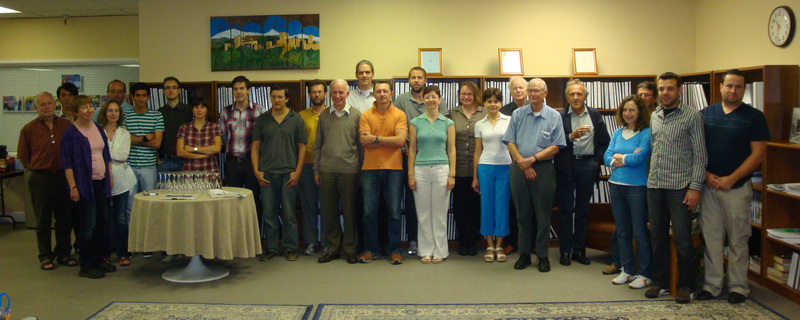Invariants in convex geometry and Banach space theory
August 20 to August 24, 2012
at the
American Institute of Mathematics,
San Jose, California
organized by
Grigoris Paouris,
Carsten Schuett,
and Elisabeth M. Werner
Original Announcement
This workshop will be devoted to invariants
and their associated inequalities.
Invariants and their associated inequalities play a central role in convex geometry and
geometric analysis on the one side, and in Banach space theory on the other.
Moreover, in recent years work is being done on various problems that are related to invariants from other fields.
While there have been many interactions between the different communities in the last decade, no systematic effort has been devoted to specifically address
interactions between the various invariants occurring in the two fields.
The aim of the workshop is to investigate invariants related to a few important problems at the intersection
of geometric analysis and in Banach space theory.
Some of the topics that the workshop will focus on are the following:
-
The ''local theory invariants'' of the projection bodies
have been thoroughly investigated. However, this work has not been carried
out for the the equally important class of intersection bodies. Among the
problems to be address during the workshop are to find the right
estimates for type, cotype, Gordon-Lewis constant, Banach-Mazur
distances and entropy numbers for intersection and generalized
intersection bodies.
-
Another family of affine invariant quantities are the affine quermassintegrals and dual affine quermassintegrals introduced by E. Lutwak. Lutwak conjectured the extreme bodies that maximize/minimize these quantities although almost all of his questions are completely open. Moreover not even good asymptotic bounds are known for these quantities.
-
The volume product is another invariant that the workshop wants to address.
Blaschke and Santalo proved that the product of the volumes of a centrally symmetric, convex body and its polar is maximal for the Euclidean ball. Mahler conjectured that the minimum is attained for the cube and its polar, the crosspolytope.
Material from the workshop
A list of participants.
The workshop schedule.
A report on the workshop activities.

